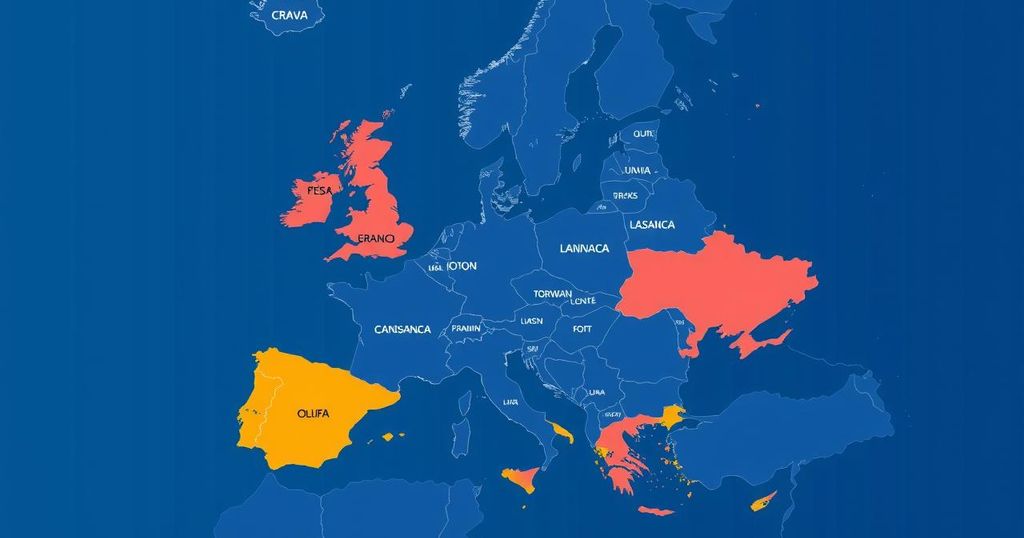EU’s New Strategies for Migrants: Return Hubs and International Cooperation

The European Union is exploring new strategies to manage unwanted migrants, including the creation of “return hubs” in countries such as Uganda and Uzbekistan. This initiative arises amidst increasing anti-immigration sentiments following electoral gains by far-right parties in Member States. The EU aims to enhance deportation efficiency while balancing humanitarian considerations, although practical implementation raises complex legal and ethical questions.
The European Union (EU) is actively seeking countries willing to accept unwanted migrants following a recent summit where its leaders endorsed innovative approaches for managing asylum seekers. The discussions focused on the potential establishment of “return hubs,” reminiscent of a previously proposed UK initiative to send unsuccessful asylum applicants to Rwanda. This shift towards embracing previously marginalized strategies highlights the influence of anti-immigration sentiments in Europe, particularly after significant electoral successes for far-right parties in Austria, Germany, and the Netherlands. Poland has initiated discussions to suspend the right to asylum temporarily, citing security concerns linked to increased border crossings from Belarus. Ursula von der Leyen, President of the European Commission, emphasized the necessity of temporary yet suitable measures in light of these challenges. While no country has been definitively earmarked to host deported individuals, Uganda has emerged as a potential candidate based on suggestions from Dutch Prime Minister Dick Schoof. Additionally, the German government has approached Uzbekistan regarding arrangements that would allow for the return of migrants in exchange for more favorable regulations concerning migrant labor. Italy’s new approach to managing asylum claims through processing centers in Albania has garnered interest, although it encountered setbacks right from the beginning when initial migrants were returned to Italy due to age and health discrepancies. The EU maintains that any innovative methods to handle irregular migration must comply with both EU and international law, with a common goal of enhancing the efficiency of deportations, which currently sees only a fifth of denied asylum cases resulting in actual deportation.
The article discusses the EU’s deliberations to create “return hubs” for migrants denied asylum, a process influenced by hard-right political victories and escalating anti-immigration sentiment across Europe. Key European leaders are exploring options that include relocating asylum seekers and refugees to countries like Uganda and Uzbekistan, while also addressing domestic legislative hurdles and human rights concerns. This re-evaluation of Europe’s asylum policy highlights the difficulties faced in balancing humanitarian obligations with increasing calls for stricter immigration controls.
In terms of conclusions, the EU’s current direction signifies a significant policy shift in response to rising anti-immigration pressure within the bloc. The proposed systems, like return hubs and asylum processing in third countries, indicate a desire to streamline asylum procedures amidst growing numbers of migrants. Nonetheless, substantial legal, ethical, and logistical challenges must be navigated, particularly regarding the inhumane treatment of individuals during deportation processes. The situation remains fluid, with member states exploring various solutions while striving to uphold international law and human rights standards.
Original Source: www.thenationalnews.com







